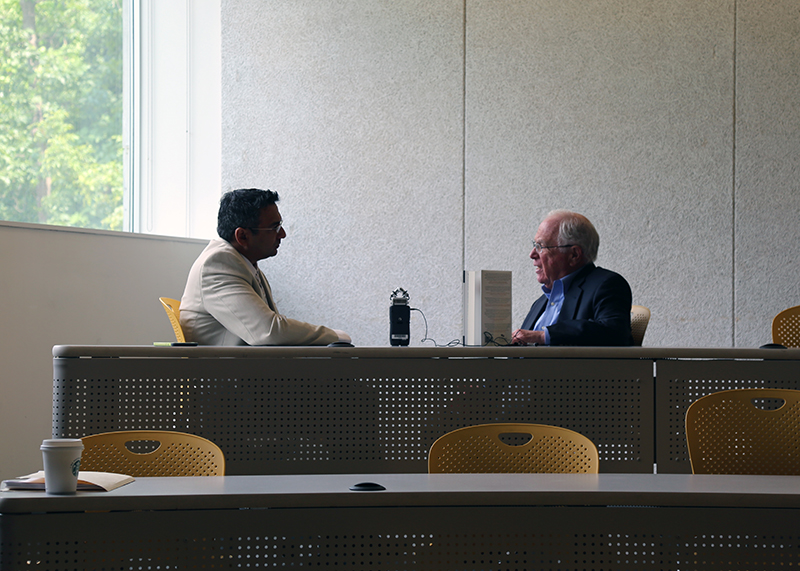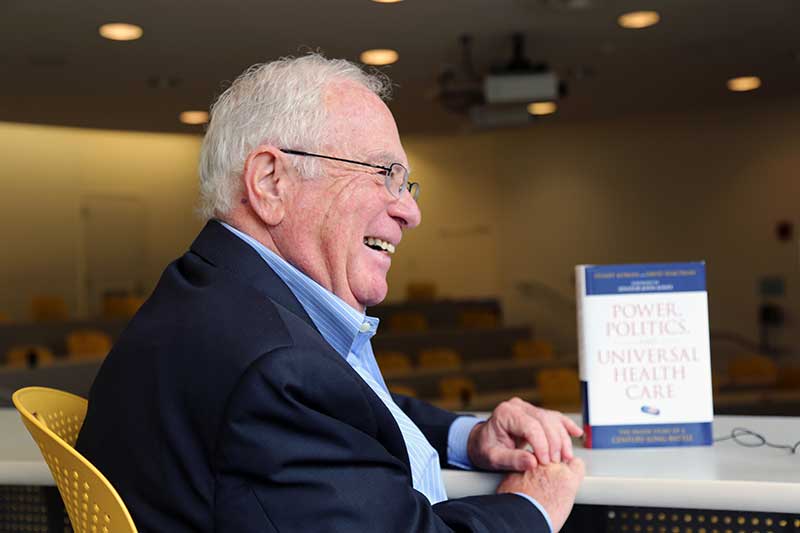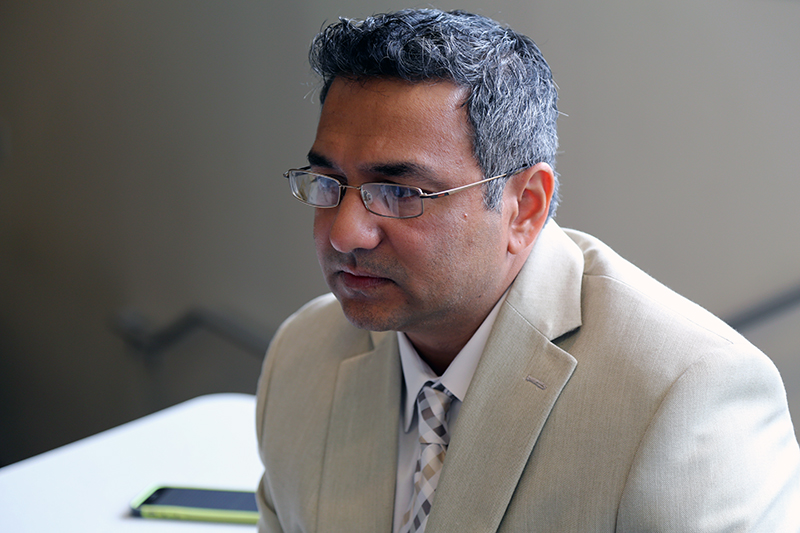
Heller thought leaders Raj Sampath and Stuart Altman sat down to discuss the history, politics and policy of the Affordable Care Act (ACA). Altman, who is the Sol C. Chaikin professor of national health policy and also chair of the Massachusetts Health Policy Commission, has been involved in federal health care reform since the Nixon administration. His book, Power, Politics and Universal Healthcare: The Inside Story of a Century-Long Battle, explains the Affordable Care Act and the long road leading up to its implementation. Sampath, an assistant professor of the philosophy of justice, rights, and social change, posed questions to Altman that touch on the moral and ethical arguments championed by opponents of the ACA. In their conversation they explore various criticisms of this landmark legislation, and seek to unravel an already complicated and politically charged issue. The full audio podcast is below, followed by a brief video clip and selected transcribed excerpts.
In the video excerpt below, Raj Sampath poses the question, “In the 70s only a marginal percentage of the GDP went to health care, and now it's up to 18% of a $17 trillion GDP. Critics could ask, are we comparing apples to apples here when we talk about industrialized democratic nations that have a moral, political, legal, philosophical obligation to provide universal healthcare, when you’re talking about socialist democracies with relatively small, homogenous populations, high tax rates, et cetera. The United States is a very big country; we’re not Japan, we’re not Scandinavia. We’re talking about immense diversity, and we’re dealing with an extremely complex political system… Is it fair to make those types of comparisons to other countries like these that [enacted universal healthcare] a long time ago, and we’re just late to the game? Or is there something to be said for those people that make the argument that ‘there’s got to be an alternative plan out there, let’s just scrap [the ACA], rethink this, and move forward’?” Altman's insightful response to this argument follows.
Stuart Altman says, “There is no question—the Affordable Care Act is a complicated piece of legislation. Why? Because we chose to build it on top of our current system. We chose not to create a much simpler, single-payer system. Why? Because many people believe that if government controlled the whole healthcare system, it would change it in a way that would be negative for many people, and it would be negative for many people that provide healthcare: doctors, hospitals, drug companies, nurses and so on. So we created the Affordable Care Act similar to the Nixon plan—a complicated override of our complicated healthcare system. And no question about it, it is very complicated. It’s been very difficult to implement, but in my view, it was the only way this country was prepared to pass universal coverage. And we just have to live with the complications. They’re not that complicated. They can work, but they require time, they require a government that is flexible. Unfortunately, with a large percentage of the population opposed to it, and the Republicans taking control of the Congress, they’ve made implementation much, much harder."

"First of all," says Altman, "there is a philosophical argument that government should not be responsible for providing services or goods to individuals who potentially have the capability to either buy it on their own or to buy insurance themselves. That is a philosophical argument that government does not have an appropriate role here. We’ve had a major debate in this country over whether health care is a right or a privilege. And there are those of us who believe that like every other industrial democracy in the world, and even many dictatorships, basic health care is a fundamental right of every American."

